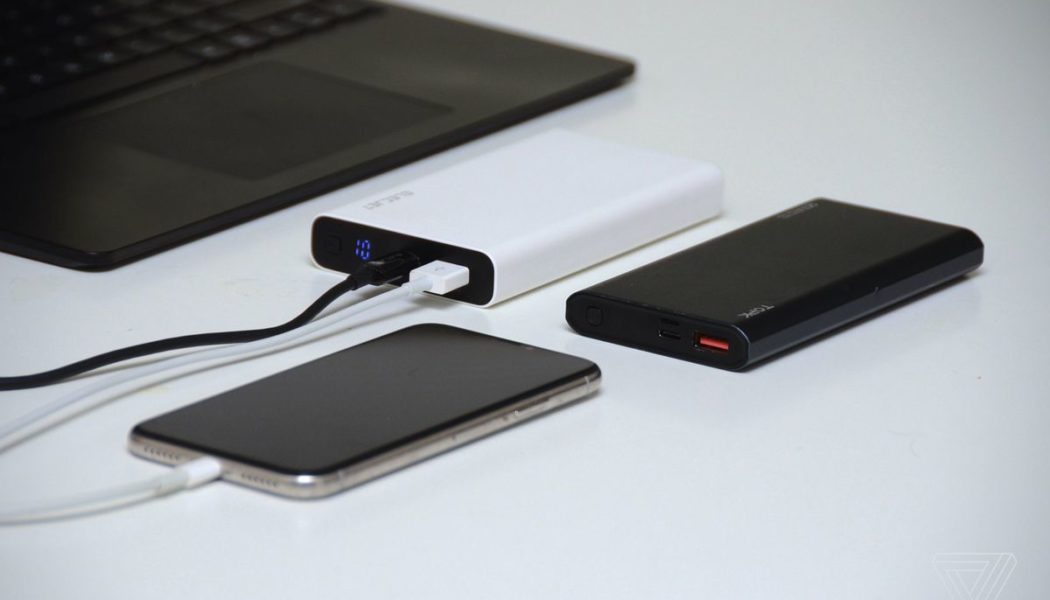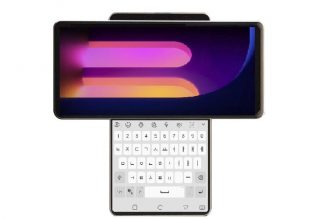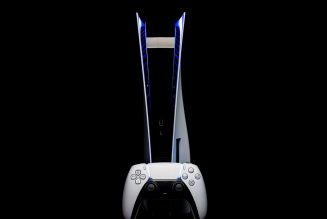Elecjet’s new Apollo Ultra battery pack uses graphene to dramatically speed up charging. Yes, graphene, that miracle material that has long promised to change the world, allows this 10,000mAh portable battery to charge from zero to full in less than 30 minutes, about five to six times faster than a conventional power bank of the same capacity. Plug it in when you wake up and the Apollo Ultra should be fully charged by the time you leave the house.
Graphene is a highly conductive lattice of carbon only one atom thick. Pure graphene batteries are still too expensive to mass-produce, but the material can already accelerate the charging characteristics of traditional batteries when applied to an electrode in composite form. That’s the approach Elecjet is taking with its new 10,000mAh (40Wh) battery launching today on Indiegogo for $65.
In addition to a faster charge rate, Elecjet says the Apollo Ultra will last for more than 2,500 charging cycles before the battery drops below 80 percent health. That’s roughly four to five times longer than conventional lithium-ion battery packs, which would be good for both your wallet and the environment.
I can’t conceivably test the lifespan claim, but Elecjet did send me a review sample of the Apollo Ultra to validate the improved charging speed.
In short, the Apollo Ultra charges fast — incredibly fast, just as Elecjet claims.
The Elecjet Apollo Ultra is a lithium-polymer battery that’s been enhanced with Real Graphene USA’s proprietary battery technology. It’s fitted with two USB ports: one full-sized USB-A and one USB-C PD 3.0. The USB-C port accepts an input of up to 100W to quickly charge the battery pack. That port is then capable of 65W out, making it powerful enough to charge many USB-C laptops. It supports Samsung’s PPS fast charging tech and holds enough energy to charge a typical phone two or three times. The USB-A port is capable of 18W max output.
Fine, but it’s the battery’s charging speed that we’re all here for, and Elecjet says the Apollo Ultra will charge from zero to full in a very impressive 27 minutes when connected to a powerful 100W wall charger.
Time lapse comparing the Elecjet Apollo Ultra charging speed with a conventional power bank of the same capacity.
My review unit repeatedly charged from zero to 99.9 percent in 27 minutes, using a 100W GaN charger (sold separately for about $50) that Elecjet supplied. It then took another 90 seconds to report 100% on the battery’s display. Elecjet says this is a minor bug, and the battery is “99.999 percent” charged at 27 minutes. The Elecjet Apollo Ultra otherwise charges linearly, reaching 25 percent in 6.5 minutes, 50 percent in 13 minutes, and 80 percent in about 21 minutes.
For comparison, I connected the same 100W charger to a 10,000mAh lithium-ion battery I recently purchased on AliExpress for about $20. It took over three hours to charge from zero to full. That supports Elecjet’s claim that the graphene-enriched Apollo Ultra charges five times faster than conventional battery packs.
I also charged the Apollo Ultra battery from my MacBook’s less powerful 29W charger. The power bank charged from zero to full in 74 minutes. That’s a lot slower, as you’d expect from the weaker charger, but still more than two times faster than the AliExpress battery connected to the 100W charger.
Things got a little odd when trying to charge two devices simultaneously off the Apollo Ultra. My MacBook reported that it was being charged at 65W when connected to the USB-C port. It then dropped to just 5W after I plugged in either an iPhone X or Oppp Find X3 Pro to charge simultaneously from the USB-A port. The Indiegogo campaign FAQ claims that the Apollo Ultra’s “output power of 87W will be divided between the two devices” so something seems awry.
The Apollo Ultra I’ve been testing warmed up only slightly in the 20 or so times I’ve fully charged and discharged it, while the slow charging lithium-ion reference battery remained cool throughout. “Warm” is commendable considering the Apollo Ultra is drawing more than five times the power, and speaks to graphene’s efficiency at dissipating heat. Elecjet tells me that the Apollo Ultra is fitted with eight safety features and that UL temperature testing never exceeded 42C (107.6F).
:no_upscale()/cdn.vox-cdn.com/uploads/chorus_asset/file/23001942/verge_DSC_6753_2040pxl.jpg)
The Elecjet Apollo Ultra is also chubbier than my reference battery despite holding the same number of electrons. That’s due to the larger power module required to handle the higher input and output wattages. While the unit’s size won’t change for the product that ships to Indiegogo backers, Elecjet tells me that the next-gen power module should allow its future hybrids to match the size of its slower charging predecessors.
Chinese phone makers are currently embroiled in a fast-charging race of their own. Xiaomi’s new 11T Pro has a 5,000mAh battery that charges from zero to 100 percent in just 17 minutes with its bundled 120W charger. But that battery is a dual-cell design, allowing both halves to charge simultaneously. That’s fine for $500+ phones with sophisticated chipsets that aren’t limited by the constraints of USB-C PD. Nevertheless, Elecjet matches that 17 minutes charge with its other graphene-enriched battery pack, the 5,000mAh Apollo Traveller.
That’s right — the Apollo Ultra isn’t the first graphene hybrid battery pack available to buy. In addition to Elecjet’s offerings, Chargeasap makes a number of hybrid battery packs, including a monster $299 20,000mAh battery pack that’s also laced with graphene, only with more ports, a wireless charging surface, and higher 100W output. The company says it’ll charge from zero to full in 70 minutes, which sounds about right since it holds twice the juice.
These hybrid batteries are an impressive first step by manufacturers on the way to developing the tiny, high capacity, and eco-friendly pure graphene batteries we’ve been promised.
Until then, the Elecjet Apollo Ultra is priced at $65 on Indiegogo right now. Elecjet says that anyone who backs the campaign by December 2nd is “guaranteed” to receive the battery pack by Christmas.








